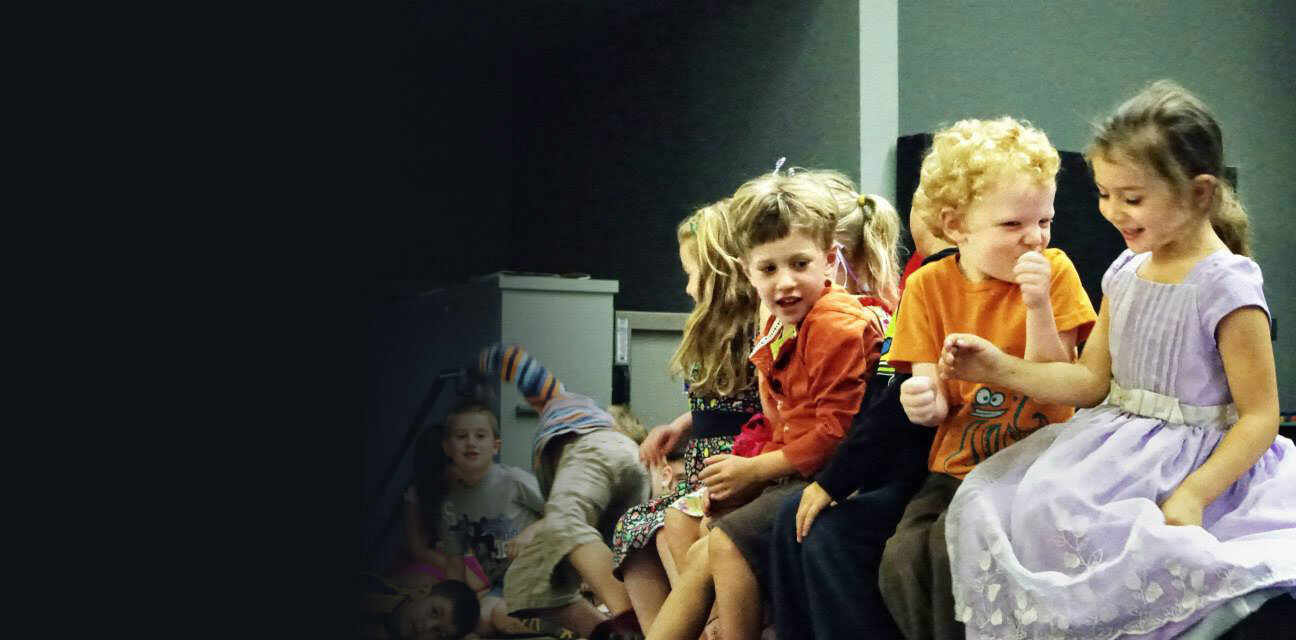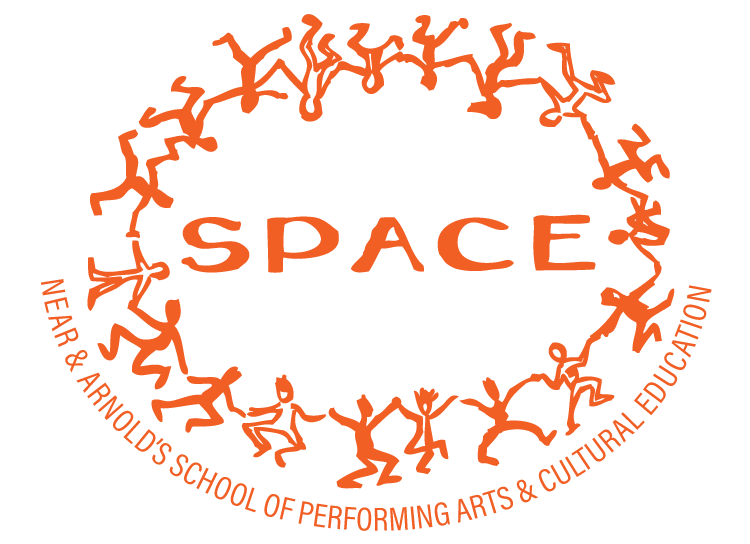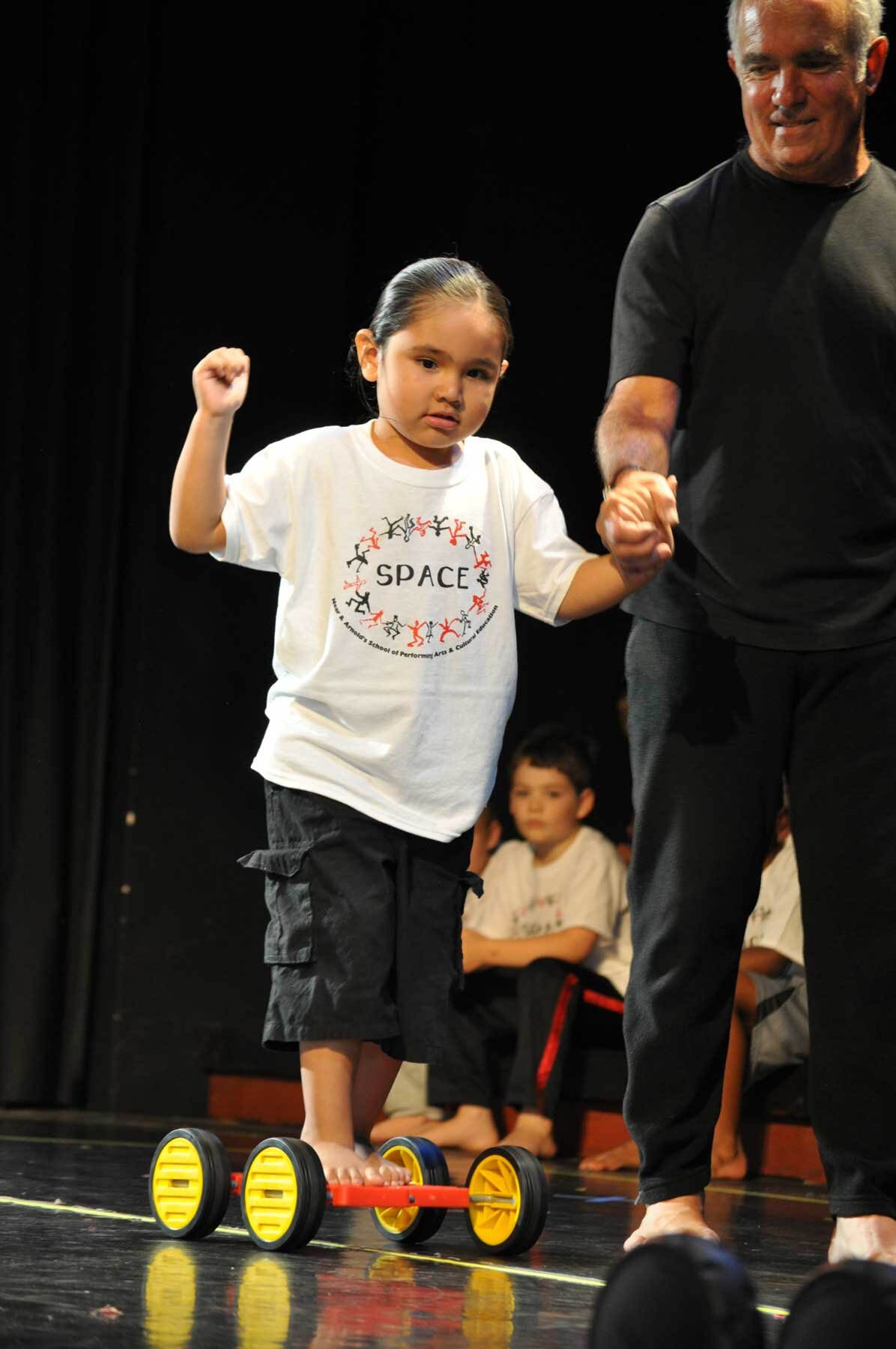
For Parents
The SPACE Education Philosophy
We want to offer you a brief description of how we work with students and the terminology we use to support their learning and social development. Our main philosophy is Time In, as opposed to Time Out. One of the main tasks for SPACE teachers is to connect thoughtfully and respectfully with each child.
Besides learning skills in performing arts, children are often working on social skill building or what we call “emotional projects.” Some children are dealing with separation or shyness, so saying goodbye to a parent is difficult for them. Others are working on impulse control, others may be learning how to make a friend, while another is dedicated to working on a new physical skill like stepping in time to a beat. We attempt to meet each child where they are in terms of their emotional state each day.
Resiliency Factors for Youth. By providing safe, stable, and nurturing relationships and environments that are essential in building trust, SPACE’s program develops resiliency factors in students. SPACE’s classes promote relationships and environments that help children grow up to be healthy and productive citizens so that they, in turn, can build stronger and safer families and communities for their children. SPACE supports parents by providing an environment where they feel welcome and are able to observe master teachers working with children in a supported, positive environment. SPACE also provides pro-active parent education classes quarterly. Although SPACE charges for these classes, no parent is turned away for lack of funds.
We have included a list of resiliency factors for youth developed by Kaiser Permanente. In many ways developing the resiliency factors is exactly what SPACE offers. Unique to our school, these ideas are clearly articulated and Teachers and Assistants are trained to see each child as an individual and make a positive connection.
Terminology and Practices: Some or all of these concepts may be introduced in classes.
Clap Schunk—A clapping rhythm is started by the teacher and then repeated by the children, showing the teacher, “I am ready and I am focused on my teacher.”
Find the empty space, find a “window” so you can see me, without touching any other performer, wall or furniture. Ready, set go!
After you. When students are pushing in line, they are taught the phrase and gesture, “After you.”
“I will help you wait….” When young children are learning to take turns, Teacher or Assistant will use the phrase, “I’ll be with you and help you wait.”
Oops and Ouch. “Oops” can be said by a child who has said something hurtful or by anyone witnessing something spoken that might be hurtful. “Ouch” can be said by the person who experiences the hurt or by someone else in the group. Students are not required to apologize or say “oops”, however, the simple act of saying “oops” may be seen as an apology. At the same time, being able to say “ouch” can quickly address a hurtful situation. This acknowledgment helps children to notice that words can hurt and also helps children notice, acknowledge and re-connect.
Credits and Appreciations at the end of class. Students learn to notice what is going well. What do you appreciate about the class and or something fun that happened today. Did another student help you? Was another student kind to you? What is your favorite part of the class?
My Turn, Your Turn or Give Focus, Take Focus. Students practice being a good audience or “giving focus” to other performers while they are onstage.
Kind words. We ask students to use kind words and to not tell scary or violent stories from movies, TV or video games. Imaginary games of gun or violent play are not appropriate at SPACE and we interrupt bullying or teasing immediately.
Etiquette in the Performing Arts. “Got it!”, “Yes!”, “Thank you,” “You’re welcome,” “Can I help with anything?” Children are not required to say these phrases but eventually do because the adults around them are modeling it and it is so much fun to express gratitude! Children will eventually learn to make eye contact with their teachers and assistants and respond to directions.
Greeting. Teachers & assistants will often greet each child by name as they arrive and each class begins with “question of the day” where children say their names and are invited to answer a very easy question. Other children practice their best listening. Question of the day begins at age 7-8.
Goodbye Song or Ritual. Repeating a song or chant or activity signals that class is over and that they worked well as a team.
Noticing positive behavior. Teachers often teach by noticing and giving credit to what children are doing well. “I see John helping Sue pick up her toys.” “I noticed that Carlos said good morning.” “Thank you, Amanda, for raising your hand when you had a question.”
Listening to Big Feelings. Big feelings are accepted at SPACE and when a child is having a big feeling, either tears or frustration, an assistant will go sit with them and listen until they are ready to join the group again -- Time In. Teachers and assistants understand that youth, while pushing themselves to try new things, will run up against emotions that block their creative and positive initiatives. To gain confidence and to access their deep intelligence, they need times when someone will listen while they have a major upset. Sometimes the small pretexts that young people wrap their major upsets around are just the top of a set of feelings that, once expressed, heard, and released, will allow a young person to operate more creatively, confidently and intelligently over all. These kinds of emotional episodes can be turning points in young people’s lives when SPACE staff listen: the respect, combined with sensible limits, gives youth an indelible sense of their own worth, and that others truly care.
Teachers and assistants are trained to notice how children are doing. Instead of sitting outside the group of children, assistants sit with the children. If a particular child seems especially wound up, our teachers do what we call “Pro-active Attention” which is sitting with the child and offering connection and options. Teachers meet often with the Executive Director, Laurel Near, to discuss what went well and what could be better. Laurel is available to have a Private Parent Conference with the registering parent—just call the office at 707-462-9370.
Download our parent letters:

